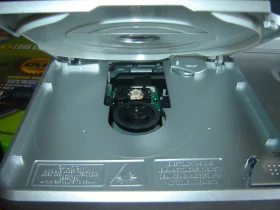In today’s financial landscape, maintaining a healthy credit score is crucial for accessing loans, mortgages, and other financial opportunities. However, if your credit score has taken a hit due to missed payments, high debt levels, or other factors, you may find yourself in need of credit repair.
Everything you need to know about credit repair, from understanding the basics to implementing effective strategies for improving your creditworthiness.
Credit Repair
Credit repair is the process of improving your credit score by addressing negative items on your credit report and implementing strategies to establish positive credit habits. It involves identifying inaccuracies, disputing errors, and taking proactive steps to rebuild your credit history.
Assessing Your Credit Situation
Before diving into the credit repair process, it’s essential to assess your current credit situation. Obtain copies of your credit reports from the three major credit bureaus – Equifax, Experian, and TransUnion – and review them carefully for errors, inaccuracies, or derogatory marks.
Identifying Negative Items
Scan your credit reports for negative items such as late payments, collections, charge-offs, and bankruptcies. These items can significantly impact your credit score and may need to be addressed through the credit repair process.
Disputing Errors
If you identify any errors or inaccuracies on your credit reports, you have the right to dispute them with the credit bureaus. Submit a formal dispute letter outlining the errors and providing any supporting documentation to substantiate your claims. The credit bureaus are required to investigate your dispute and correct any inaccuracies within a reasonable timeframe.
Establishing Positive Credit Habits
In addition to addressing negative items on your credit report, it’s essential to establish positive credit habits that will contribute to long-term credit health. This includes making timely payments, keeping credit card balances low, and avoiding excessive credit inquiries.
Strategies for Credit Repair
Once you’ve assessed your credit situation and identified areas for improvement, it’s time to implement strategies for credit repair. Here are some effective approaches to consider:
1. Paying Off Outstanding Debts
Start by paying off any outstanding debts, particularly those in collections or with high balances. Focus on tackling debts with the highest interest rates first, and consider negotiating with creditors for more favorable repayment terms.
2. Negotiating with Creditors
If you’re struggling to repay your debts, consider reaching out to your creditors to negotiate a repayment plan or settlement. Many creditors are willing to work with borrowers to find mutually beneficial solutions that allow them to recoup at least a portion of the debt.
3. Using Secured Credit Cards
Secured credit cards can be a valuable tool for rebuilding credit. These cards require a security deposit, which serves as collateral against the credit limit. By using a secured credit card responsibly and making timely payments, you can demonstrate positive credit behavior and improve your credit score over time.
4. Becoming an Authorized User
If you have a family member or friend with good credit, consider asking them to add you as an authorized user on their credit card account. As an authorized user, you can benefit from their positive payment history and responsible credit usage, which can help improve your credit score.
5. Seeking Professional Help
If you’re overwhelmed by the credit repair process or unsure where to start, consider seeking help from a reputable credit repair company or credit counseling agency. These professionals can provide guidance, negotiate with creditors on your behalf, and help you develop a personalized plan for improving your credit. You can get help from https://credit-repair.com
Maintaining Long-Term Credit Health
While credit repair can help you address immediate issues and improve your credit score, it’s essential to maintain long-term credit health by adopting responsible credit habits. Make it a priority to pay your bills on time, keep your credit card balances low, and regularly monitor your credit reports for any changes or inaccuracies.
Conclusion
Credit repair is a proactive process that requires patience, persistence, and diligence. By assessing your credit situation, addressing negative items, and implementing effective strategies for improvement, you can take control of your financial future and achieve your credit goals.
Remember that rebuilding credit takes time, but with dedication and effort, you can achieve a brighter financial outlook.










Hello!! My name is Annabella
I love to eat, travel, and eat some more! I am married to the man of my dreams and have a beautiful little girl whose smiles can brighten anyone’s day!